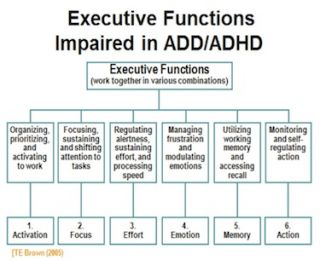
The Mysteries of ADD and High IQ
Source Article: https://www.psychologytoday.com/blog/kids-and-adhd/201108/the-mysteries-add-and-high-iq
We recently published a study of 117 high IQ children and adolescents with ADD. (Note: In this article, the term ADD is used to refer to both ADD and ADHD). All of these very bright students were struggling in school and often also in social relationships because of their ADD-related problems. Results from that study uncovered a pattern of vulnerabilities in executive functions, the management system of the brain, that caused these bright students to have chronic difficulty in focusing on their work, in getting their work done adequately, in keeping in mind what they had just heard or read, and in organizing and completing assignments. Some have been mystified as to how very bright students could suffer from ADD. They assume that being smart protects a person from the difficulties associated with ADD. This study shows that it doesn't.
Here are 5 questions that our research team repeatedly encountered from high IQ kids and their parents and teachers:
1. Doesn't a person have to be hyper or have behavior problems to have ADD?
No! Most of the children and teenagers in this study of ADD were not hyperactive and had few, if any, significant behavior problems. For decades, this syndrome now known as ADD or ADHD was seen as a behavior disorder, a set of problems seen just in little kids who couldn't sit still, wouldn't shut up and who frustrated parents and teachers with chronic misbehavior. Research over the past 20 years has dramatically changed understanding of ADD by showing that many who fully meet diagnostic criteria for ADD have never had significant behavior problems. The core of ADD as it is now understood is a developmental delay in executive functions, a cluster of cognitive abilities that regulate other functions of the mind.
2. How can someone be really smart and yet have ADD?
All of the 117 kids in this study fully met diagnostic criteria for ADD and all had IQ scores of 120 or more, placing them in the top 9 percent of their age group on basic intelligence. Some were strongest in verbal comprehension, some were strongest in visual-spatial reasoning, and some were equally strong in both.
ADD has nothing to do with how smart a person is. Some individuals with ADD are super-smart on IQ tests, many score in the average range, and some are much lower.
Students in this study, compared to others of the same age, were impaired not by lack of smarts, but by chronic inability to deploy their smarts in effective work and in getting along with other people. One of the measures used in our study was a rating scale that inquires about impairments in various clusters that describe executive functions (EF). Everyone has problems with these various functions sometimes; people with ADD have much more difficulty with these functions than do most others of the same age.

Data from this study show that individuals can have very high IQ and still suffer significant impairments in each of these executive functions that are essential for working effectively and for getting along with other people.
3. How can someone be an honor student in elementary school and then struggle and fail repeatedly in high school or college?
Most of the students in this study got high grades in elementary school. Many were in special programs for talented and gifted students. Their school difficulties tended to begin when they made the move from elementary school, where they were with one teacher and the same group of classmates most of the day. Entry into middle school or junior high often brought increasing difficulties in keeping track of assignments and in completing homework. We explain that these students struggled when required to operate more independently without that one teacher who can help to keep tasks and expectations organized for all subjects throughout the day. As homework requirements escalated and parents were less able to monitor what was going on in all the various classes, many of these very bright students began to flounder.
Some of the older students in the study had managed to function well even with the demands of middle school and high school. Many of them had parents who were successful in maintaining supportive scaffolding around their sons and daughters, helping them to prioritize, plan, monitor and complete multiple assignments. Often the ADD impairments of these strongly supported high IQ students did not show up until they went away to college or university. There, lost without the strong daily support of their parents, many of these very bright students were unable to cope with their schoolwork, had plummeting grades and were required to take a semester off or transfer to another, less challenging college. Just being very smart is not enough to be successful in college, university or employment; one also needs to be able to manage oneself, to work productively and to get along reasonably well with peers, professors, supervisors, and employers.
4. How can someone focus very well on playing a sport, video games, drawing, or making music and not be able to focus enough on almost anything else?
The most mystifying aspect of ADD is that everyone who has this disorder is able to focus very well on a few specific types of tasks, even though they have great difficulty in focusing effectively on almost everything else. All of the students in this study reported that they had no difficulty in exercising executive functions very well for a few specific activities. For some it was participating in a sport or making art or music. For others, focus came easily for repairing car engines, cooking, using the computer, or designing websites. When asked to explain why they could focus on those few specific activities, but not on other tasks they recognized as important, the students typically responded by saying: "If it's something that really interests me, I can focus. If it's not really interesting to me, I just can't focus, even when I know it's important and I really need to do it."
...
Leave a comment
Also in ADHD Natural News

The ADHD Overdiagnosis Epidemic Is a Schooling Problem, Not a Child One



